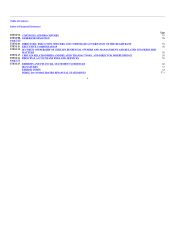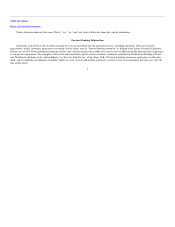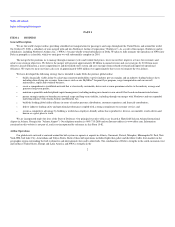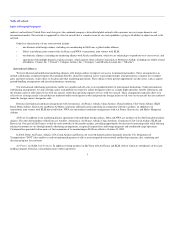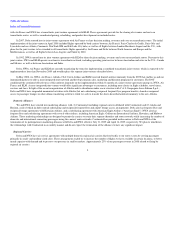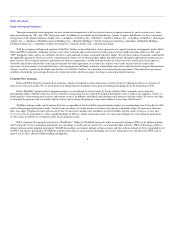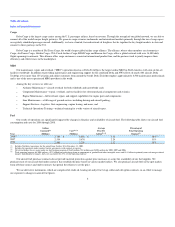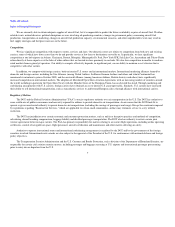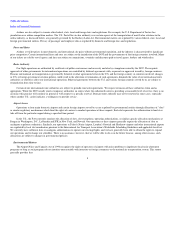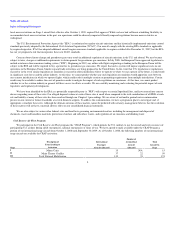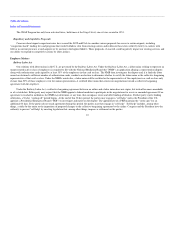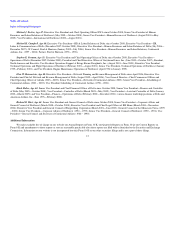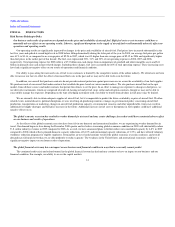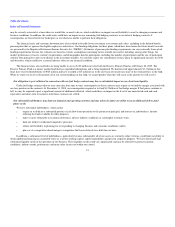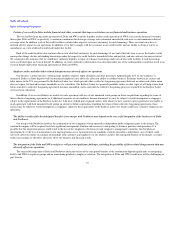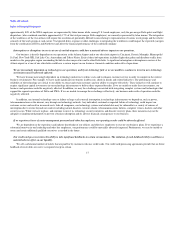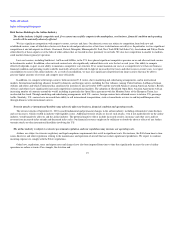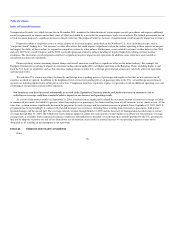Delta Airlines 2008 Annual Report Download - page 15
Download and view the complete annual report
Please find page 15 of the 2008 Delta Airlines annual report below. You can navigate through the pages in the report by either clicking on the pages listed below, or by using the keyword search tool below to find specific information within the annual report.
Table of Contents
Index to Financial Statements
The CRAF Program has only been activated twice, both times at the Stage I level, since it was created in 1951.
Regulatory and Legislative Proposals
Concerns about airport congestion issues have caused the DOT and FAA to consider various proposals for access to certain airports, including
"congestion-based" landing fees and programs that would withdraw slots from existing carriers and reallocate those slots (either by lottery to carriers with
little or no current presence at such airports or by auction to the highest bidder). These proposals, if enacted, could negatively impact our existing services and
our ability to respond to competitive actions by other airlines.
Employee Matters
Railway Labor Act
Our relations with labor unions in the U.S. are governed by the Railway Labor Act. Under the Railway Labor Act, a labor union seeking to represent an
unrepresented craft or class of employees is required to file with the National Mediation Board (the "NMB") an application alleging a representation dispute,
along with authorization cards signed by at least 35% of the employees in that craft or class. The NMB then investigates the dispute and, if it finds the labor
union has obtained a sufficient number of authorization cards, conducts an election to determine whether to certify the labor union as the collective bargaining
representative of that craft or class. Under the NMB's usual rules, a labor union will be certified as the representative of the employees in a craft or class only
if more than 50% of those employees vote for union representation. A certified labor union then enters into negotiations toward a collective bargaining
agreement with the employer.
Under the Railway Labor Act, a collective bargaining agreement between an airline and a labor union does not expire, but instead becomes amendable
as of a stated date. Either party may request that the NMB appoint a federal mediator to participate in the negotiations for a new or amended agreement. If no
agreement is reached in mediation, the NMB may determine, at any time, that an impasse exists and offer binding arbitration. If either party rejects binding
arbitration, a 30-day "cooling off" period begins. At the end of this 30-day period, the parties may engage in "self help," unless the President of the U.S.
appoints a Presidential Emergency Board ("PEB") to investigate and report on the dispute. The appointment of a PEB maintains the "status quo" for an
additional 60 days. If the parties do not reach agreement during this period, the parties may then engage in "self help." "Self help" includes, among other
things, a strike by the union or the imposition of proposed changes to the collective bargaining agreement by the airline. Congress and the President have the
authority to prevent "self help" by enacting legislation that, among other things, imposes a settlement on the parties.
10


